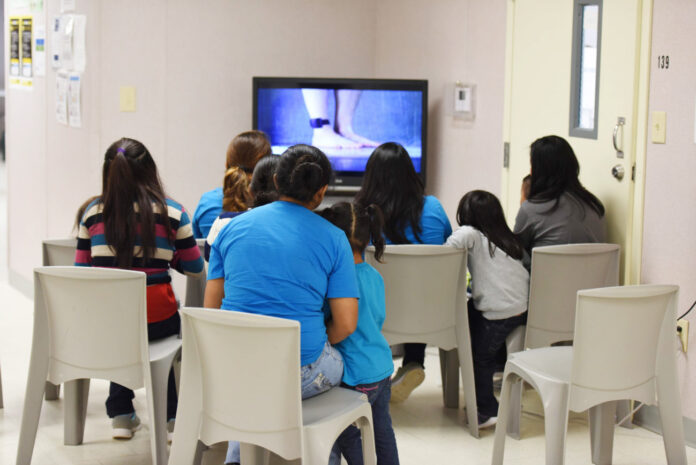A court denied over the weekend another request by attorneys for U.S. Immigration and Customs Enforcement to delay release of roughly 100 migrant children from its detention facilities, court records show.
The court had already once granted a delay to ICE — a 10-day extension of a July 17 deadline on an order handed down June 26, in which it was ordered to release all migrant children held for more than 20 days in its “family residential centers” amid the pandemic.
The jails in question are the Karnes County Family Residential Center, the South Texas Dilley Family Residential Center and the Berk’s facility in Pennsylvania.
In the June 26 order, U.S. District Judge Dolly Gee gave the U.S. Department of Homeland Security until July 17 to comply with the Flores Settlement Agreement and release all migrant children within ICE facilities — characterizing the centers as “on fire,” with regard to COVID-19.
The settlement was reached decades ago between the federal government and child welfare and legal advocates, who had demanded government officials address child welfare violations within the immigration detention system that had gone unaddressed for years.
The government was to release all children who had been in custody for more than 20 days but not their guardians or parents that are being held with them — as parents and guardians were not included as protected parties in the Flores Settlement Agreement.
In a separate but similar lawsuit about the unhealthy conditions at ICE facilities, this one by attorneys representing the parents for the migrant children, a judge in Washington ruled last week that ICE had met sufficient standards with regard to COVID-19 and denied a request to have them released.
The filing on Saturday shows government attorneys once again filed for a delay to meet the obligations of the order, but unlike the July 15 ruling, this time they were denied by Gee.
In the court’s filing Saturday, it states ICE must release migrant children at its facilities for more than 20 days if the following takes place: The parents or guardians consent to have the kids released without them; ICE agrees to release the kids with their parents; or lastly, another judge orders the release of the parents, which was denied last week by a Washington court.
“There are currently 100 affected Class Members. If none of these prerequisites has been met by the July 27, 2020 deadline, Paragraph 1 of the June 26, 2020 Order is unenforceable by its own terms. There is therefore no need for a stay,” Gee wrote in the filing.
Additionally, the judge states, nothing is stopping ICE from “promptly” releasing all eligible migrant children from its facilities, as required by the Flores settlement and as “this Court has ordered time and again.”
In a surprising note in the filing, the court asked all parties involved to stop “disseminating the fiction that families will be separated as of the Court’s July 27, 2020 deadline,” the document states. “(DHS, ICE), has been enjoined from detaining parents without and apart from their minor children absent parental consent or a determination that the parent is unfit…”
Advocates and attorneys for the migrant children and their parents characterize the choice ICE presents to parents as “cruel, and “unnecessary.”
Karla Vargas, an attorney with the Texas Civil Rights Project, in an interview with The Monitor earlier this month on the heels of the Gee order, said that in April, after a similar but separate court order was handed down, DHS officials presented a false choice to parents: “If you want your child released, you’ll sign a document allowing us to separate you from your child. That is how you can have your child released.”
Vargas said subsequently these children would be placed with a family after they’re approved for sponsorship, through the vetting process. But she said there was no guarantee that these children would actually be placed with the family members that the parents hoped would be placed with.
The parties are due back for an update in early August, court notes show.




